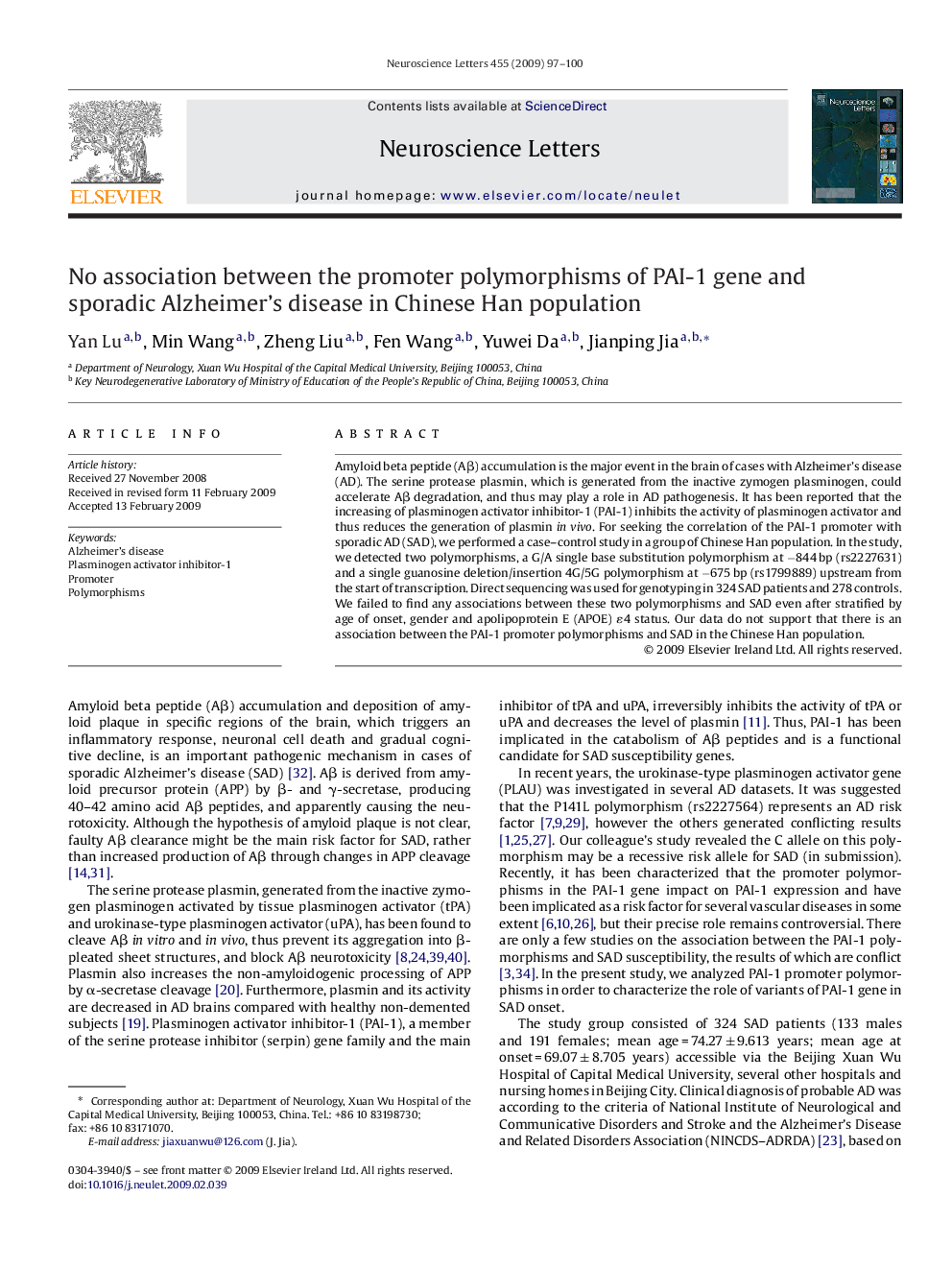| Article ID | Journal | Published Year | Pages | File Type |
|---|---|---|---|---|
| 4347157 | Neuroscience Letters | 2009 | 4 Pages |
Amyloid beta peptide (Aβ) accumulation is the major event in the brain of cases with Alzheimer's disease (AD). The serine protease plasmin, which is generated from the inactive zymogen plasminogen, could accelerate Aβ degradation, and thus may play a role in AD pathogenesis. It has been reported that the increasing of plasminogen activator inhibitor-1 (PAI-1) inhibits the activity of plasminogen activator and thus reduces the generation of plasmin in vivo. For seeking the correlation of the PAI-1 promoter with sporadic AD (SAD), we performed a case–control study in a group of Chinese Han population. In the study, we detected two polymorphisms, a G/A single base substitution polymorphism at −844 bp (rs2227631) and a single guanosine deletion/insertion 4G/5G polymorphism at −675 bp (rs1799889) upstream from the start of transcription. Direct sequencing was used for genotyping in 324 SAD patients and 278 controls. We failed to find any associations between these two polymorphisms and SAD even after stratified by age of onset, gender and apolipoprotein E (APOE) ɛ4 status. Our data do not support that there is an association between the PAI-1 promoter polymorphisms and SAD in the Chinese Han population.
